Belize Recognized for Low Mother-to-Child HIV Transmission
As recently as ten years ago, the transmission of HIV through unprotected sex, and blood transfusion through the sharing of drug needles was alarming. In fact, to prevent further spread of the virus, health discussions back then were focused on condom-use. The idea eventually latched on and now, the transmission is around two hundred per year. But Belize is doing an even greater job at reducing the transmission of HIV from mother to child and for that, the World Health Organization recognized our efforts in that area. At a ceremony in Jamaica today, Belize was one of three Caribbean countries to receive certification for that achievement. According to Public Health Nurse Esther Deville, Belize has been recognized for reducing not only mother-to-child transmission of HIV below five percent, but also syphilis. News Five’s Marion Ali reports
Marion Ali, Reporting
Belize’s efforts in reducing the incidence of mother-to-child transmission of HIV and Syphilis have paid off with a recognition today by the World Health Organization. The global health authority today certified Belize, Jamaica and St. Vincent and the Grenadines for keeping their annual transmission rate below five percent. The effort to reach this goal, according to the Director of Public Health and Wellness, Dr. Melissa Diaz-Musa, began over two decades ago.
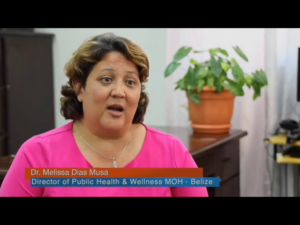
Melissa Diaz-Musa
Dr. Melissa Diaz-Musa, Dir., Public Health & Wellness
“We had started with the program of elimination from about the year 2000, between 2000 and 2004 when it really strengthened. We have been able to strengthen the capacity in our laboratory services. That has also helped us for early detection, more awareness, and early treatment, of course.”
Gynaecologist, Dr. Marcelo Coyi, says that under an agreement with the Ministry of Health & Wellness, private hospitals must also provide affordable access to pregnant mothers under the National Health Insurance.
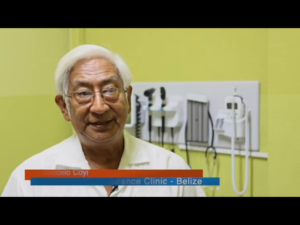
Marcelo Coyi
Dr. Marcelo Coyi, Gynaecologist, Belize Medical Associates
“As soon as a woman goes to the general clinic, a pregnancy test is done, and she’s automatically booked into the prenatal clinic so that we get them as early as possible in the first trimester. And that has been another change that we have seen, where the the amount of pregnant ladies joining the clinic in the first trimester has increased to about 90 percent in the first trimester. The medication used requires no out of pocket payment by patients. That is also a very critical part of ensuring that we continue to provide these medications free of cost.”
Stephanie Lisama took both the syphilis and HIV tests a couple months ago under the ministry’s program because she says she wants to know her status for her baby’s sake.
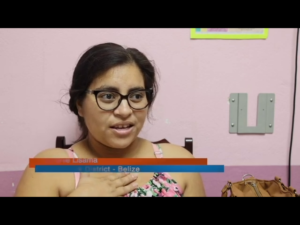
Stephanie Lisama
Stephanie Lisama, Pregnant Mother
“It’s important for me to have this syphilis and HIV test because I don’t know if I have it. So if I know, if I would know that I have it, then I would make sure that the baby is okay because then it can be transmitted to the baby and any complications can cause complications to the baby and that’s what I want to avoid.”
Public Health Nurse Esther Deville accompanied Minister of Health Kevin Bernard to Jamaica to receive the certificate. She shared with the media that there is a stringent protocol for administering the antiretrovirals to pregnant mothers who are infected. The medication, she says, significantly reduces the transmission of HIV to the unborn child, but the earlier the mother registers at a health clinic and tests for these diseases, the better it is for her baby.
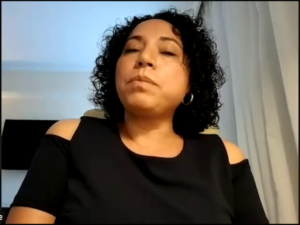
Esther Deville
Esther Deville, Public Health Nurse
“At this point where we are in Belize, there is no need for a child to be born with HIV, have a vertical transmission of HIV or syphilis because we have the medication and the resources available for them to prevent that. The medication now suppresses your viral load. By you suppressing your viral load, the chances of you transmitting the virus to your child is almost nil. And it is measured. We do have viral load testing in Belize, where we would test to see how it is. And the truth is, from my experience, from what I have experienced in caring for those women, is that one month the viral load decreases significantly. So the medications are very effective. You might have, for instance, a mother who, would reach probably late to the clinic, right. And there are medications that are given for these special matters. So everything is done from our part in the health system to ensure that this matter, this baby is negative. However, there might be some factors that are out of our control, and so it is not, it is less than 5%.”
Minister of Health and Wellness, Kevin Bernard joined in encouraging all pregnant mothers to make use of the chance to protect their baby’s future.
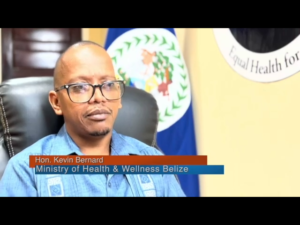
Kevin Bernard
Kevin Bernard, Minister of Health & Wellness
“Every child has the right to born and remain free from HIV and syphilis.”
Marion Ali for News Five.





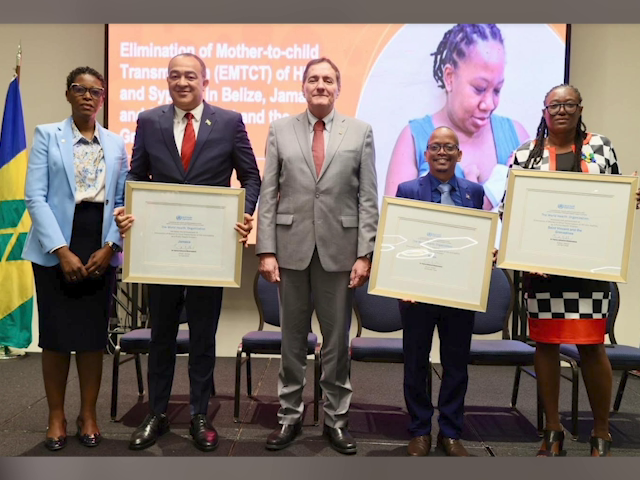
Facebook Comments